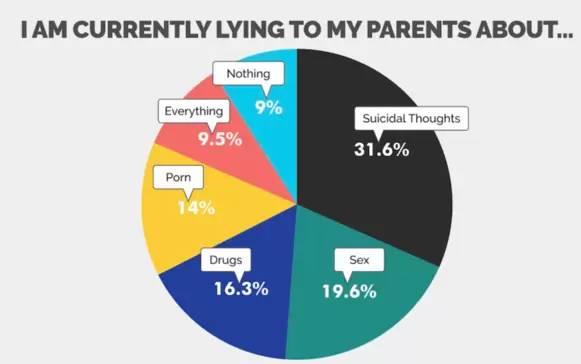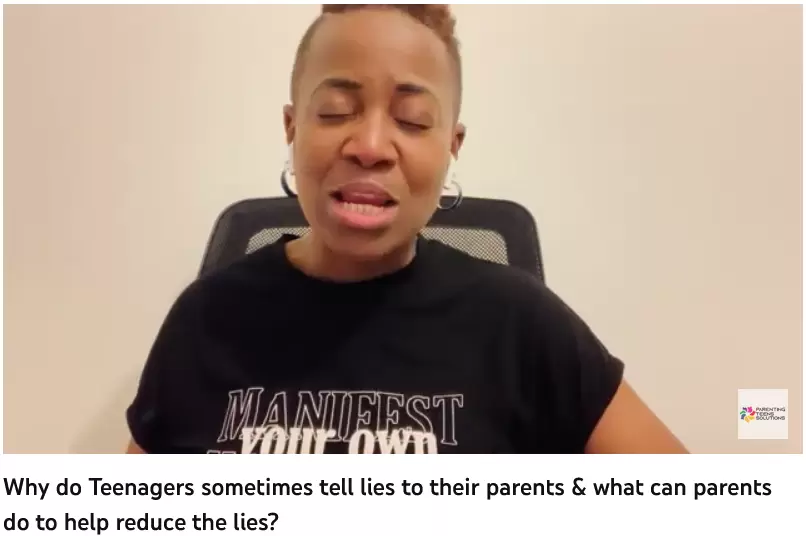DECEPTION AND LYING
WHY DO THEY DO IT
Parents aren’t always good at recognizing when their teens are lying. And when they do discover a lie, they don’t have effective strategies for how to deal with a lying teenager. Thus, they may respond with anger and punishment. As a result, they drive their kids farther away.
Why do teenagers lie more than any other age group? Teens tend to push the boundaries as part of finding independence, so lying to cover up risky behaviors is common. Moreover, during the teen years, the brain is still immature. As the adolescent brain develops, emotional regulation and impulse control improve. Therefore, teens have less to lie about as well as better communication skills.
THREE TYPES OF TEENAGE LYING
Lying by avoidance: This strategy involves steering parents away from topics that teens don’t want to talk about. Therefore, teens distract their parents from conversations that might force them to reveal information that they don’t want to share.
Lying by omission: When teens lie by omission, they leave out key pieces of information that they know would be important to their parents. But leaving out unimportant information that parents wouldn’t much care about doesn’t qualify as a lie.
Lying by commission: This is the most basic form of lying: intentionally making statements or telling stories that are not true. Darling says that this type of lying is more rare than the others. However, outright lies have the most negative impact on parent-child relationships.
You need to understand why. Hear are some reasons
Fear – He may be scared he will disappoint you or a friend. He may be afraid of being direct with you, or he may be afraid of your anger or that you will pull away from him. At some level your teen may fear the truth may interfere with love. He fears the truth may damage or destroy the relationship. Help him feel safe, and reassure him.
Parental Double Binds – Sometimes the parent might make a rule that is not realistic, and the teen can’t win. E.g. you don’t want your son to be alone with a certain friend. In a group situation this might be hard to avoid, so make the rule “alone with”.
A shortcut mentality – Lying can sometimes be easier than the truth, so lying may seem more practical.
Take a no tolerance stand – Deception is deception. There is no such thing as a white lie.
Stay connected, even in the problem – You need to let your teen know that her lying makes connection difficult, that you want to continue a relationship with her but the deception gets in the way of that.
Make it clear that love is free, but freedom is earned – To give more rope you need to trust and deception lessens the trust.
Give your teen a way to earn freedom – e.g. give her the freedom to go out with her friends with the proviso she is to ring you several times and that an adult has to be on the line to verify she is where she said she was going to be.
Go lighter on confession, heavier on deception – Let him know that if he breaks a rule it will be better for him if he admits the truth rather than being caught in a lie. If he has been deceptive the consequence will be much higher than if he had simply confessed the transgression.
Catch what you can but stay focussed on the relationship – Don’t cause your kid to think you are going to monitor every second of their life. Catch the deceptions that you can but stay focused on the relationship.
Other Reasons
- To get out of trouble
- In order to do something they’re not allowed to or that is dangerous
- Because they believe their parents’ rules are unfair
- They think what they want to do is harmless
- As a way to protect others’ feelings
- Maintaining privacy
- Most important—to establish their independence and autonomy.

HOW TO ESTABLISH HONEST COMMUNICATION WITH A TEEN
Here are some approaches that will help parents to head off teen lying, especially if they are having trouble understanding why do teenagers lie. The goal is to build open, honest communication.
Be Available and Interested
If teens don’t want to talk, don’t push them. Find ways to start conversations at times when a teen is relaxed, such as on a long drive or while working on a household chore together. Make sure they know that you’re interested in whatever they want to share. (However, it’s best to avoid helicopter parenting.)
Set Clear Rules But Also Be Warm and Accepting
Teens often lie because they believe that telling the truth will result in punishment, disapproval, anger, or a lecture. According to Darling, teens are the most honest with their parents when they’re not afraid of being harshly and unjustly punished. Setting rules with clear boundaries and reasonable consequences provides a healthy structure for teens.
Serve As a Positive Role Model
It’s not just teens who lie: Adults tell one white lie per every five social interactions. However, kids who observe their parents telling white lies might conclude that it’s better to avoid conflict than tell upsetting truths. Therefore, they can take on that behavior themselves.
Avoid Trapping Teens In a Lie
Pretending not to know about a lie and trying to get a teen to confess will backfire. Instead, teens may feel that their parents aren’t being upfront with them, so why should they be honest either?
Don’t Label Teens as Liars
Separate the behavior from the person. Teens take labels seriously, and tend to internalize them. If they see themselves as a liar, they will lie more often.
Dig Deeper Into a Lie
If parents don’t understand why their teen lied, they need to find out. What was the teen hiding? Why did they feel the need to keep it secret? What were they afraid would happen if their parents found out? These questions may help parents learn more about what a teen is going through.
Sometimes teen lying is a misguided way to protect parents. Teens value their parents’ opinions and want their approval. Therefore, they may lie rather than admit to something it will be hard for parents to hear. Hence, parents need to give teens the message that they are willing and able to participate in difficult conversations and deal with hard situations. As a result, teen lying will decrease and parent-teen relationships will thrive.
